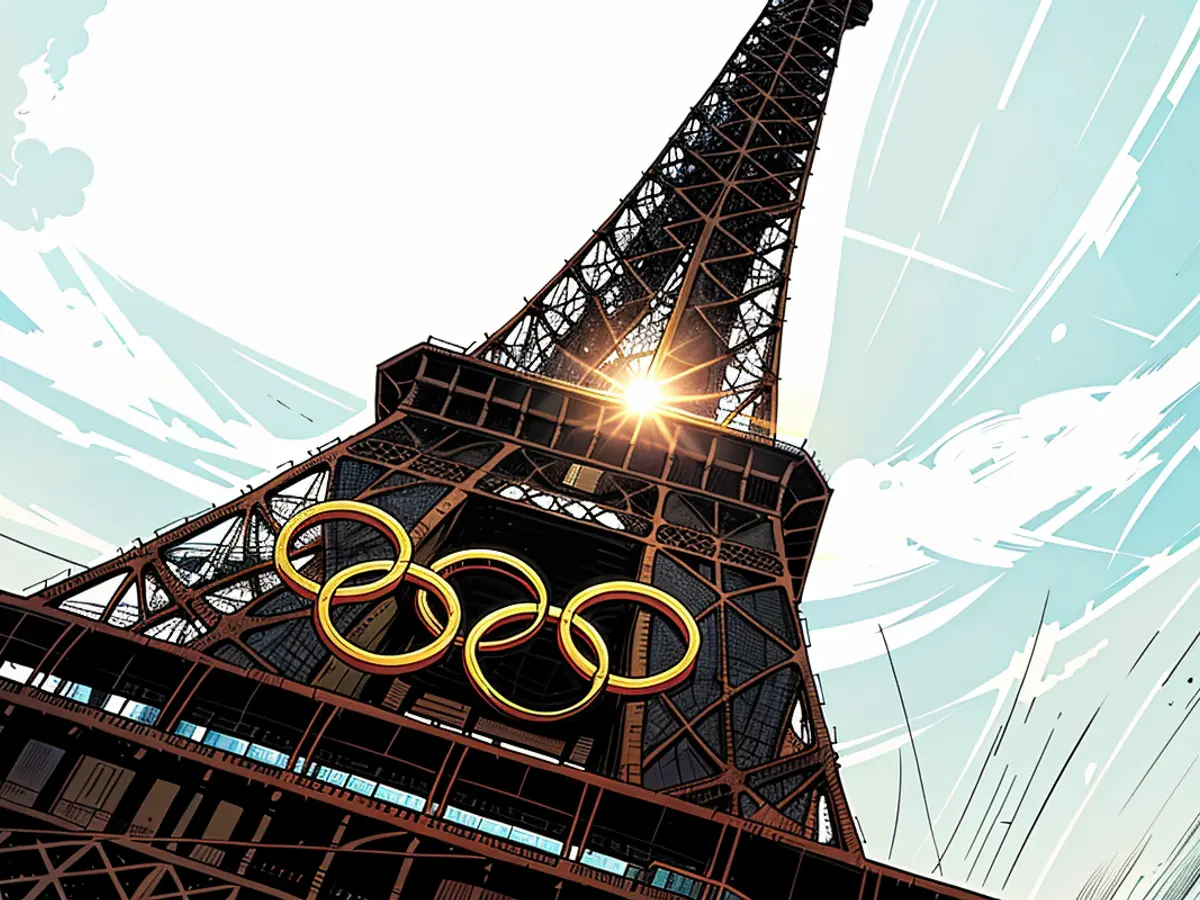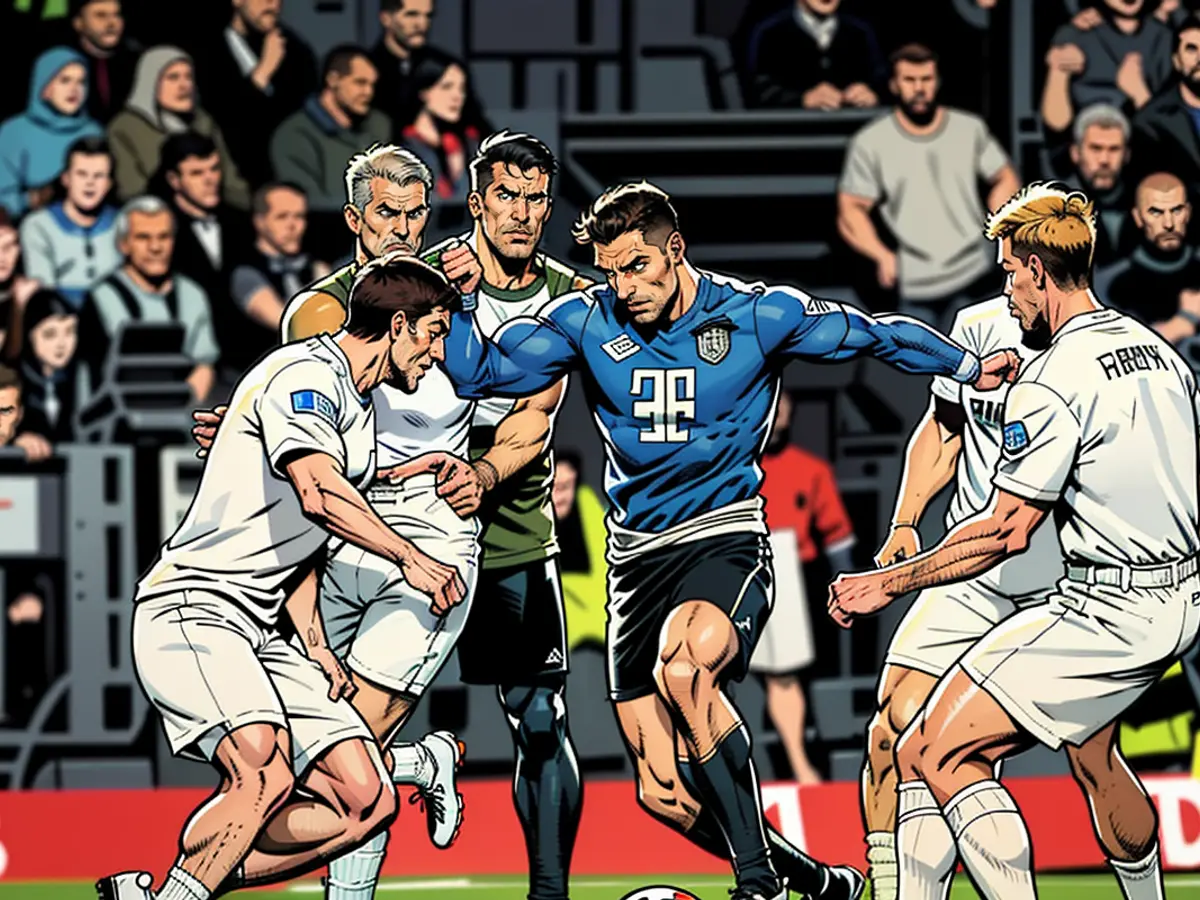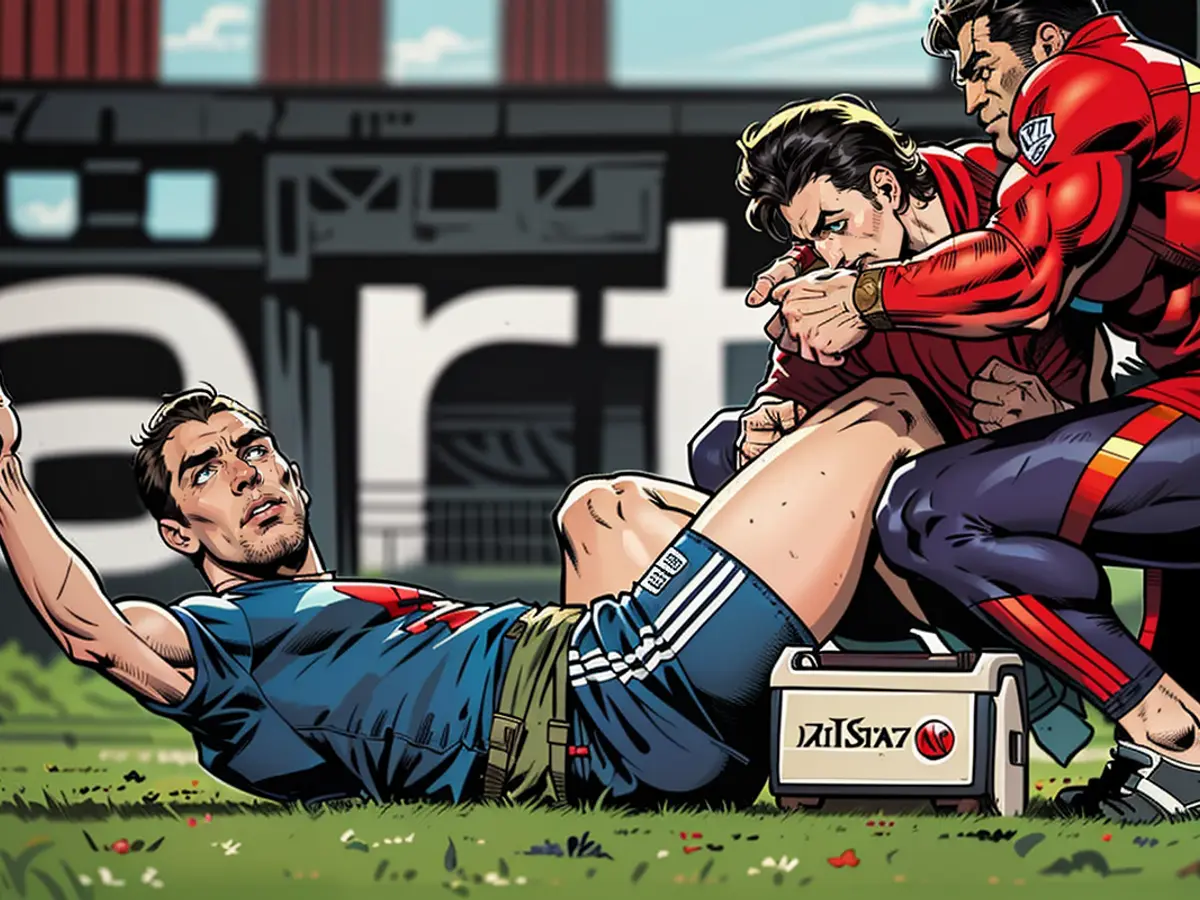Only the Seine was really sick
The Olympic Games in Paris are coming to an end - and will be remembered. Not just by the swimmers in the Seine. The French capital is sending impressive images to the world. There are also heated debates, but they are important.
Perhaps they will talk about these being the best Olympic Games ever at the closing ceremony in Paris. In the past, this assessment was often forced and thus devalued. It is very likely that someone, perhaps the eternally euphoric IOC President Thomas Bach, will unpack the laurel wreath as a thank you and farewell. He was already barely containable in his love for Paris on Friday. "The Olympic Games 2024 are a love story," he swooned. Even more so: "Everyone is in love with it: the athletes, the French people, the fans all over the world."
This year, the sentence about these being the best Games ever could come closer to the truth than many past editions. Not only because of the shadow of the Corona pandemic. The Olympic Games, the world's largest sporting event, had received quite a few scratches in recent years. Too much grandiosity. Too much Putin and China. Too much backroom politics. Too little sustainability. Could one still look forward to the Olympic Games, even try to bring them to one's own country? These questions were asked.
Spectacular arenas, gigantic atmosphere
Paris has given the answer. It is "oui"! The tiresome debates about human rights and unnecessary show buildings did not exist. The city's sights were used and made part of these Games, providing great images. The existing arenas were usually packed to the brim. The enthusiastic fans created great, unique, and widely praised atmospheres. They sang the classic "Aux Champs-Elysées". And again and again the beautifully sounding hymn "Marseillaise". For example, the beach volleyball court under the Eiffel Tower outshone the fantastic arena at Copacabana 2016 in Rio. In front of the dreamlike backdrop of the Palace of Versailles, the equestrian riders competed for medals. Michael Jung won the third gold in eventing. ARD reporter Carsten Sostmeier was overjoyed and spun the rhetoric roulette. The cycling stars raced past Sacre-Coeur. In the Grand Palais, fencing was held, and bows were drawn in front of the Invalides.
And what was happening in Arena Sud 4, where new table tennis heroes were born and great legends were bid farewell? Felix Lebrun is perhaps the most unreal hero of the Games, Annett Kaufmann the greatest discovery, and Timo Boll the man everyone lay at his feet. The table tennis matches were accompanied by decibel numbers like a Formula 1 race. It was similar at the swimming in the renovated rugby stadium. Leon Marchand, the French swimming beast, even got President Emmanuel Macron to take off his tie. Where else does that happen? Almost all athletes, male and female, received great attention and much love: even the often ridiculed race walkers. And the surfers who competed in the most dangerous wave in the world, 16,000 kilometers away, and created iconic images. Gabriel Medina in stillness, for example, or the walrus greeting the sporting world.
The Games begin with a huge provocation
No, of course, the Olympic Games were not perfect this time either. And that's a good thing. The Games are not just about glory and triumph, but also about drama. What perhaps shouldn't have happened were the dramas that unfolded after swimming in the Seine. Several athletes fell ill. Leonie Beck, for example, vomited nine times and struggled with diarrhea. Belgian triathlete Claire Michel was also hit hard. Not everything could be attributed to the water quality, but the river remained a persistent issue. It had been a central topic even before the start, and the entrance of the nations was different this time. They didn't walk into the stadium, but greeted from boats on the Seine. This interesting idea for the controversial opening ceremony didn't quite go as planned.
The French capital welcomed the athletes with plenty of glamour and flipped off the non-free world. The heavily polarizing show with various provocations didn't just anger the eternally angry Donald Trump and the largely suspended Russia, but also the offended Vatican. Many critics believed that Leonardo da Vinci's painting "The Last Supper" was recreated at the ceremony - among others by drag queens.
The Parisian organizers and art historians deny this: the inspiration for the show was not da Vinci's "The Last Supper", but a painting called "The Feast of the Gods", which depicts a lively gathering on Mount Olympus. The Games had their first big stir, but also sparked a debate about how we want to live. The Olympics are a melting pot, not an antiseptic festival of peace. They are celebrated in the context of world events, not isolated from them. A Moroccan judoka refused to shake hands with an Israeli. An Afghan B-girl sent a message for women's rights in her home country, where the medieval Taliban rule with brutal force. She was disqualified.
This was quickly overshadowed by the case of boxer Imane Khelif. She had knocked out her opponent so hard in her first fight that the latter was shocked into submission. The case grew bigger and bigger because both Khelif, from Algeria, and Lin Yu-ting from Taiwan were excluded from competitions by the controversial boxing federation IBA, which has been suspended by the IOC. The case became a bizarre culture war that raged for days and will continue to echo even after both boxers won gold medals. This is because the IOC, as in the past, found itself in a difficult position regarding the question of categorization into the binary system of man and woman. A solution is urgently needed, no matter how difficult it may seem. The same goes for the doping issue. The case of China weighed heavily on the swimming competitions. The IOC and the World Anti-Doping Agency reject the constant interference of US authorities.
The case of Steven van der Velde was also hard to bear. The Dutch beach volleyball player came to the Games as a convicted child abuser. He had served his sentence but was still hated by the fans. They branded him as what the word child abuser implies and booed him. But the case is not as simple as that (as you can read here again). And so, a debate raged about how to deal with the 30-year-old. Does he have a chance at rehabilitation, or will he pay for the "biggest mistake of his life" forever? Before the Games, the past was not an issue, but on the big stage, it was brought into the spotlight. For the athlete and his family, who has a young child, it remains a heavy burden.
At the sandpit beneath the Eiffel Tower, a great career came to an end. Beach volleyball icon Laura Ludwig realized after her first-round debacle that it was time to say goodbye. And with her, many great athletes are retiring. Boll will not return to the big stage. Angelique Kerber is also retiring. Likewise, the eternally injured tennis giant Andy Murray. And no one knows what will happen to Rafael Nadal, who was humbled by Novak Djokovic in the singles. Nikola Karabatic, the most successful handball player in history, has also reached the end of his sporting journey, dramatically defeated by the German team**.
The heroic stories are the ones that captivate people. And nowhere are they written in such density as at the Olympic Games. The German handball team, led by the phenomenal Renars Uscins, caused palpitations on several occasions. Yemisi Ogunleye enchanted the Stade de France with gold in the shot put. Darja Varfolomeev touched hearts with her gymnastics super show en route to gold. The 3x3 basketball women took the fast-paced spectacle to new heights. The German sprinters wept with joy, Horst Hrubesch retires with the most thrilling happy ending imaginable. Lukas Märtens flew to gold in the pool and then served as the charming, lovestruck "Magdeburg" ambassador.
There are too many great stories to list them all. Kerber's fiery tennis dances belong among them, Mihambo's silver fight against the consequences of Corona. But it's not just the German stories that captivate people here. There's Simone Biles between sensation and drama. The extroverted sprinter Noah Lyles, who wants to win four gold medals, runs with a Corona infection and must then end his Games. Or the phenomenal returning champion Teddy Riner, who wrote judo history and made France stand still for a moment. The roof of the Stade de France flew off when the wild rugby sevens team around Antoine Dupont dethroned the Fijians. The wrestler Vinesh ended up in the hospital in her desperate fight for 100 grams. Or the soaring "Mondo" Duplantis and the speeding Femke Bol. And there are the men's hockey players who almost came to blows at the end of a dramatic final. The women's team surprised coach Valentin Altenburg with his harsh announcement: "Anne, shut up now."
Security was barely an issue
Fortunately, security was barely an issue at these Games. There had been great concern before the Games that there could be a terrorist attack. Paris had significantly beefed up security, putting police and military on high alert. But apart from a few isolated incidents with forgotten items that turned out to be harmless, there was nothing to cause any alarm.
France has made a strong statement with these Games. For the value that this festival brings. For the love, reconciliation, and understanding it creates in dangerous political times. For the fact that even weary and wavering democracies are capable of organizing great, free festivals.
These Games were fun and evoked great emotions. For example, the French basketball team's loss to the US team with the incredible Stephen Curry, after which the wunderkind Victor Wembanyama cried uncontrollably. All this is part of Olympic tradition, as is the grumbling about conditions and food in the athletes' village.
Were they the greatest games of all time? Who cares? They achieved something monumental. They painted over the scratches on this festival with beautiful images and big moments, igniting a desire for both Milan and then Los Angeles. The legacy of these games is immense.
Despite some health issues among athletes due to the water quality in the Seine, the Olympic Games 2024 in Paris have been a spectacle unlike any other. The beach volleyball court under the Eiffel Tower overshadowed the fantastic arena at Copacabana 2016 in Rio, and table tennis matches in Arena Sud 4 were accompanied by decibel numbers like a Formula 1 race. These Games have shown that the Olympic spirit is not just about glory and triumph, but also about drama, love, and reconciliation, proving that even weary democracies are capable of organizing great, free festivals.
In the closing ceremony, it's likely that the International Olympic Committee President Thomas Bach will praise these Games as it's possible that they come closer to being the best Olympics ever, not just due to the shadow of the Corona pandemic, but also because the Olympic Games had received quite a few scratches in recent years.







